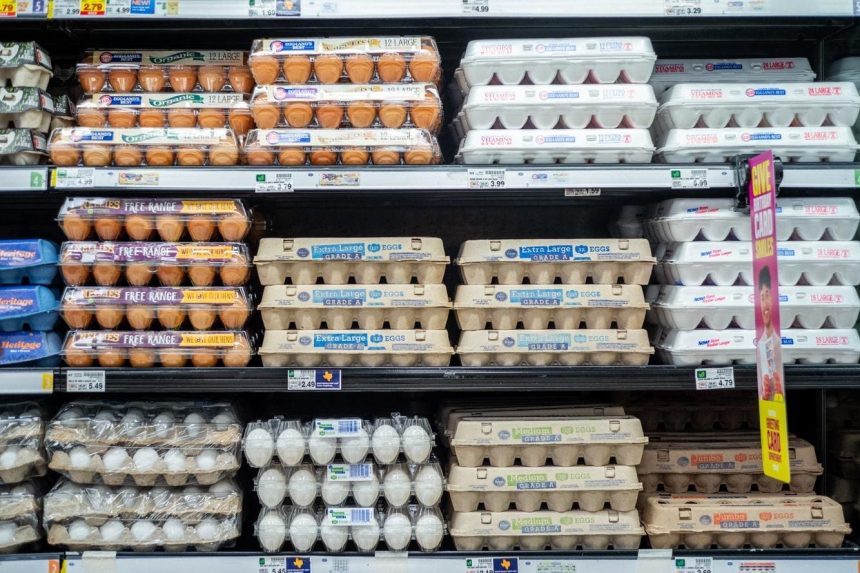The festive season, a time of joyous gatherings and culinary indulgence, can unfortunately be marred by unexpected food safety concerns. The abundance of holiday meals, often featuring traditional recipes and readily available convenience foods, amplifies the impact of food recalls. This year, a series of recalls targeting popular holiday staples, from eggs and seafood to seemingly innocuous snacks like potato chips and frozen pizza, underscored the importance of vigilance in protecting our families from foodborne illnesses. The recalls serve as a stark reminder that even amidst the holiday cheer, food safety should remain a top priority.
One significant recall involved Costco’s Handsome Brook Farms Organic Eggs, a common ingredient in holiday baking and breakfast dishes. The potential for Salmonella contamination prompted this recall, raising concerns for countless households that rely on eggs for their festive culinary creations. Salmonella, a bacterium that can cause food poisoning, poses a particular risk to vulnerable populations like young children, the elderly, and those with compromised immune systems. The recall highlighted the importance of thorough cooking of eggs to eliminate potential pathogens and prevent illness.
Another recall impacting a popular holiday snack involved Lay’s Classic Potato Chips sold in Oregon and Washington. These chips were recalled due to undeclared milk allergens, presenting a serious threat to individuals with dairy allergies. Even seemingly simple snacks can harbor hidden allergens, making it crucial to carefully review ingredient labels, especially during the holidays when food sharing is common. Undeclared allergens can trigger severe allergic reactions, ranging from mild discomfort to life-threatening anaphylaxis, underscoring the need for manufacturers to adhere to strict labeling regulations.
Seafood, a frequent feature of holiday feasts, was also subject to a recall. Oysters and Manila clams harvested from Pickering Passage in Washington were recalled due to a norovirus outbreak. Norovirus, a highly contagious virus, can cause debilitating gastrointestinal illness. Consuming raw or undercooked shellfish contaminated with norovirus can lead to severe vomiting, diarrhea, and dehydration. This recall emphasized the importance of sourcing seafood from reputable suppliers and ensuring proper cooking practices to minimize the risk of infection.
Convenience foods, often relied upon during the busy holiday season, also faced recalls. Connie’s Thin Crust Cheese Frozen Pizza was recalled due to potential plastic contamination, a hazard that could cause physical harm if ingested. Similarly, Lidl’s Taste of Deutschland Frozen Buttered Vegetables were recalled for undeclared milk allergens, again highlighting the need for vigilance in checking ingredient lists even for seemingly straightforward products. These recalls emphasize the importance of inspecting packaged foods for any signs of damage or tampering and adhering to proper handling and cooking instructions.
Impero Foods & Meats Raw Italian Pork Sausage, a popular ingredient in holiday dishes like stuffing and pasta sauces, was recalled for being distributed without federal inspection. This lack of oversight raises serious concerns about potential food safety hazards, as the absence of proper inspection protocols leaves room for undetected contamination or improper handling. Consumers are advised to avoid consuming products that have not undergone the necessary regulatory scrutiny to ensure their safety.
To navigate the potential hazards presented by food recalls, especially during the holiday season, proactive measures are essential. Regularly checking reputable sources like the USDA and FDA websites for recall alerts is crucial. These agencies provide up-to-date information on recalled products, including specific product details, lot numbers, and potential health risks. Subscribing to email alerts from these agencies can ensure timely notification of any recalls.
Careful examination of food packaging is another critical step in safeguarding against recalled products. Checking batch numbers, expiration dates, and product codes against recall notices can help identify potentially contaminated items. When in doubt, it is always safest to discard the product. Proper storage and handling of leftovers are also essential in preventing foodborne illnesses. Refrigerating leftovers within two hours of serving and consuming them within three to four days can minimize bacterial growth. Reheating leftovers to an internal temperature of 165°F (74°C) ensures the destruction of harmful bacteria.
Open communication with guests and family members about potential food recalls is vital, particularly when hosting or sharing meals. Ensuring that everyone is aware of any recalled products that might have been part of the holiday spread can prevent accidental consumption and potential illness. Familiarity with the symptoms of foodborne illnesses, such as nausea, vomiting, diarrhea, and fever, is also important. If anyone experiences these symptoms after consuming a potentially recalled product, seeking immediate medical attention is crucial. Reporting suspected foodborne illnesses to local health authorities can help track outbreaks and prevent further spread.
In conclusion, while the holiday season is a time for celebration and culinary indulgence, it is essential to remain vigilant about food safety. The wave of recalls impacting various holiday staples this year underscores the importance of proactive measures to protect ourselves and our loved ones from foodborne illnesses. By staying informed about recalls, carefully scrutinizing food packaging, practicing safe food handling and storage, and communicating openly with others, we can minimize the risks and enjoy a healthy and happy holiday season. The diligence we exercise in safeguarding our food can significantly contribute to a truly joyous and worry-free festive experience.



